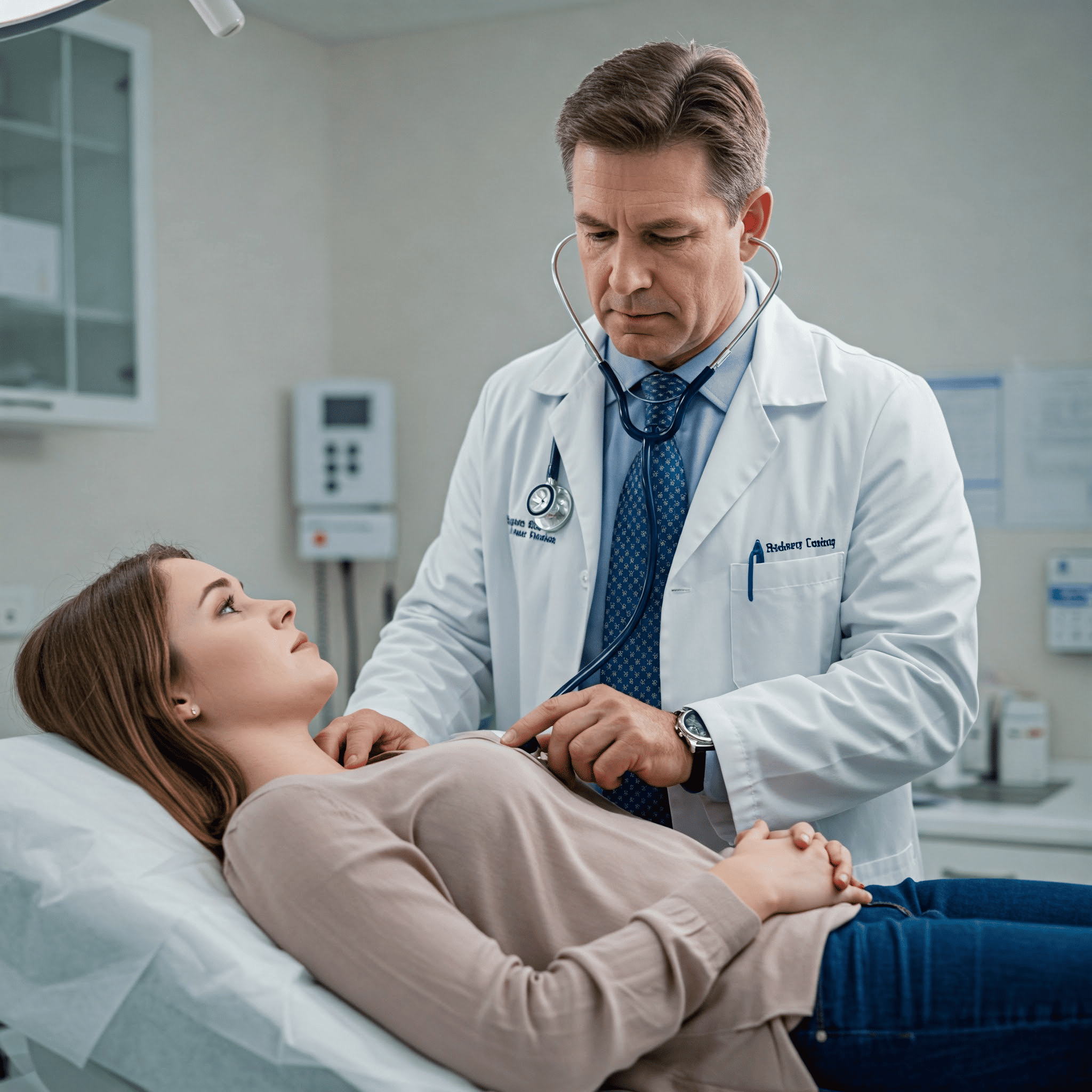Pain is not normal. period.
Decoding the invisible illness endometriosis
Commonly dismissed as “heavy menstruation” or often misdiagnosed as PCOS, Endometriosis can be described as an invisible illness. On the outside, a woman may not seem to have any prominent or unusual symptoms, but inside, she feels limited and challenged in many ways.
Endometriosis is an inflammatory disease where tissue similar to the lining of the womb grows outside it in other parts of the body. Commonly, endometriosis is found in and around the pelvis, but it can also be seen in the bowel, bladder and even as far as the lungs and brain. Endometriosis can start during a woman’s first menstrual period and last until her menopause. It is even known to challenge fertility and make pregnancy difficult.


What’ on offer at neo-woman’s endometriosis clinic?
We understand that every woman’s experience with endometriosis is unique, requiring a personalized approach to care. Our expert team focuses on accurate endometriosis testing for diagnosis, identifying signs of endometriosis such as pelvic pain, heavy periods, and infertility.
We assess endometriosis stages and design individualized treatment plans that include endometriosis medication, minimally invasive surgery, and holistic therapies. Whether managing mild symptoms or advanced cases, our specialists ensure effective treatment of endometriosis tailored to your needs.
- Endometriosis symptoms
Endometriosis symptoms vary, but common signs of endometriosis include severe pelvic pain, painful periods (dysmenorrhea), heavy menstrual bleeding, pain during intercourse, and chronic lower back pain. Other symptoms involve digestive issues, bloating, and pain during bowel movements or urination. The severity of symptoms often depends on the endometriosis stages, ranging from minimal to severe. Many women also experience fatigue, infertility, and emotional distress. If you notice persistent endometriosis signs, it’s essential to seek medical help.
Consulting an endometriosis specialist at neo-Woman can provide a proper endometriosis diagnosis and guide you toward the right endometriosis treatment for effective pain management and long-term relief.
Here are some of the key procedures available at our hospital:
- Breast Augmentation
- Breast Lift
- Breast Reduction
- Breast Reconstruction
The specific procedure recommended depends on your unique goals, body type, and overall health. It’s essential to discuss your individual needs with our experienced surgeons, who will guide you through every step of the process to ensure the best possible outcome. Our team is here to support you at every stage of your aesthetic journey. Feel free to reach out for more information or to schedule a consultation.
- Endometriosis diagnosis
Accurate endometriosis diagnosis is crucial for effective treatment. Endometriosis testing for diagnosis involves a detailed medical history, pelvic exams, and imaging tests like ultrasound or MRI to detect abnormal tissue growth. However, the most definitive method is laparoscopy, a minimally invasive procedure that allows direct visualization and biopsy of endometrial implants.
Identifying endometriosis stages helps determine the best treatment of endometriosis, from hormonal medications to endometriosis surgery. If you’re experiencing endometriosis signs, consulting an endometriosis specialist near me ensures precise diagnosis and a tailored treatment plan for optimal health and well-being.
- Endometriosis treatment
Endometriosis treatment varies depending on symptom severity and endometriosis stages. First-line approaches include pain management with painkillers, such as NSAIDs, and hormonal medications like combined birth control pills, hormone therapy, or progestin therapy to slow endometrial growth. If symptoms persist, endometriosis surgery, including laparoscopic excision or ablation, is recommended to remove lesions and improve quality of life. In severe cases, endometriosis treatment surgery, such as hysterectomy, may be required.
- Endometriosis and fertility
Endometriosis and fertility are closely linked, as the condition can cause scarring, inflammation, and blockages in the reproductive organs, making conception difficult. Women with advanced endometriosis stages may experience reduced ovarian reserve or implantation failure. However, with the right treatment of endometriosis, many women successfully conceive. Options include hormonal medications to regulate ovulation and endometriosis surgery to remove lesions improving fertility. In some cases, IVF or assisted reproductive technologies (ART) may be necessary. If you’re struggling with endometriosis and infertility, an endometriosis specialist near me can help develop a personalized plan to enhance your chances of conception.
- Endometriosis and mental health
The chronic pain and emotional burden of endometriosis significantly affect mental health, leading to stress, anxiety, depression, and fatigue. Persistent endometriosis symptoms, unpredictable flare-ups, and challenges with fertility can cause emotional distress. Effective pain management, including hormonal medications, painkillers, and hormone therapy, can improve physical and mental well-being. Additionally, therapy, support groups, and mindfulness practices help manage anxiety and improve coping strategies.

Frequently asked questions
What causes endometriosis?
The exact cause is unknown, but possible factors include genetic predisposition, hormonal imbalances, retrograde menstruation, immune system dysfunction, and environmental influences.
Is endometriosis curable?
There is no permanent cure, but effective treatments like hormonal therapy, pain management, and endometriosis surgery can control symptoms and improve quality of life.
How to prevent endometriosis?
While it cannot be fully prevented, maintaining hormonal balance through birth control pills, regular exercise, a healthy diet, and managing inflammation may help reduce risk.
Can endometriosis affect pregnancy and fertility?
Yes, endometriosis can cause scarring, inflammation, and blockages, affecting ovulation and implantation. However, surgery, hormonal treatment, and assisted reproductive technologies (ART) like IVF can improve fertility.
What are the best treatment options for managing endometriosis pain?
Pain management includes painkillers (NSAIDs), hormonal medications, combined birth control pills, hormone therapy, and minimally invasive surgery to remove lesions and reduce symptoms.
